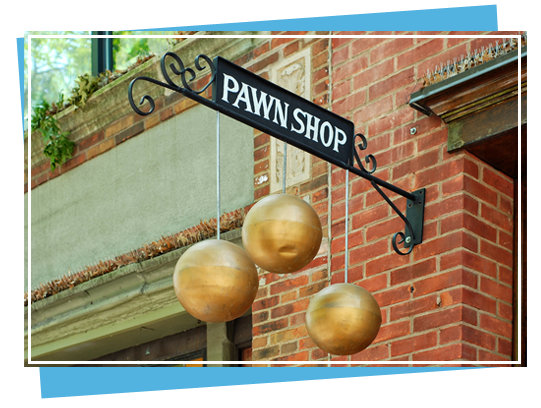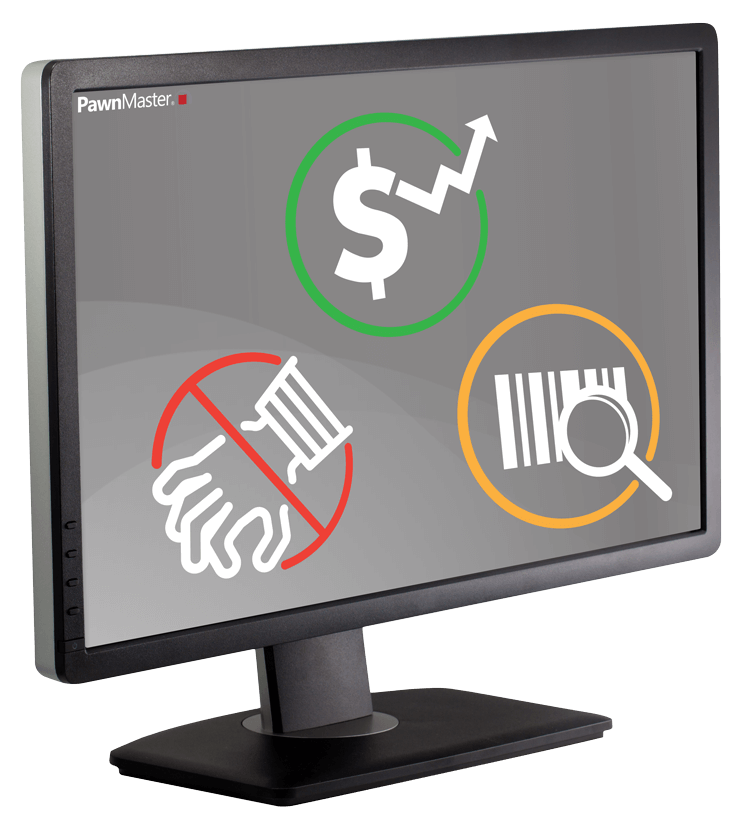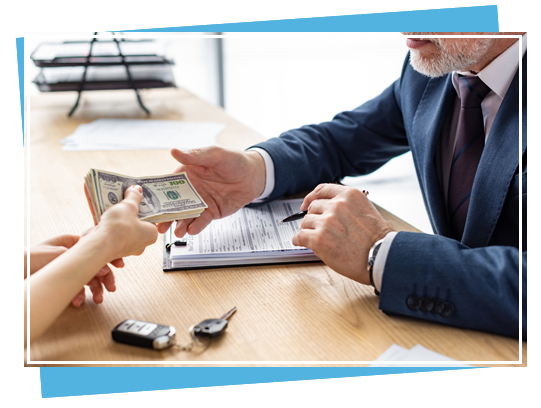PawnMaster pawn shop software is easy to use and easy to learn. You’ll be able to process a new customer in 90 seconds or less! Keep those lines moving so your customers don’t have to wait. Maintain all the data you enter in an organized way so your operation is more efficient. As a pawn shop owner, you’ll be able to help your community while reselling items to make a living.

How to Start a Pawn Shop
Begin by Outlining a Business Plan
Writing a business plan is always the first step for any kind of business. A business plan helps you outline how you want to proceed and serves as proof to the bank that you know what you’re doing. It also allows you to identify the missing pieces in your initial plan.Consider the following questions while drafting your first business plan:
What will be your base and ongoing costs?
- A computer system
- An accounting software
- Cash register
- Permits and licenses
- Security systems
- Inventory
- Building costs and rent
Who is your target audience?
Pawn shops receive a variety of customers for different reasons. You need to find a way to promote your pawn shop to cater to those who want to buy second hand items, and for those who want loans or to make some money.How much money will you make?
As an aspiring pawn shop owner, you need to consider how much you will charge customers and how you can increase your profit. Depending on your pawn shop’s location, this amount will vary. These are only a few questions that you need to think about. Look up more resources on how to draft a proper pawn shop business plan to get a better idea of how you should prepare to open your pawn shop.Where do you want to do business?
As mentioned above, the location of your pawn shop matters as this will be an approximate measure of how much you can charge, what type of clientele you will receive, and how many clients will be likely to enter your pawn shop. Furthermore, depending on where you settle, it will give an indication of the size of your pawn shop, the cost of rent, and allow you to think about a marketing strategy to advertise to different people.Form a Legal Business Entity
Once you have your basic steps covered, you need to establish a legal entity. You can choose to be the sole proprietorship, or be in a partnership, LLC, or choose to be a corporation. Each is different and has its own advantages and disadvantages. This will influence your costs and the way you run your pawn shop.Get the Necessary Licenses and Permits For Your Pawn Shop
You need to think about the licenses and permits you need as a seller. Some states require you to have a secondhand dealer license. These are not only necessary for legal reasons, but it will also help gain the trust of your clientele as you are in charge of determining the value of their items.
| Anti-Theft |
| Cash Flow Optimization |
| Inventory Management |
| Anti-Theft |
PawnMaster has several built-in anti-theft features. Reduce or eliminate employee and customer theft with text messenger manager alerts, serial numbers, inventory tracking and employee history reporting. We also integrate with Eyeson Digital, so you can digitally capture transaction information.
| Cash Flow Optimization |
Knowing where your money is being tied up is critical to any successful pawn shop. If you understand your aging inventory, you can price it aggressively and move it before it depreciates so you can get that money back out on the street. PawnMaster reporting lets you understand your high-performing inventory as well.
| Inventory Management |
The dynamics of the pawn industry make inventory management vital to any pawn shop. With PawnMaster, you’ll be able to track any items coming in for pawns, buys or repairs. You’ll be able to manage your aging inventory, and you’ll even be able to manage any inventory you purchase to sell from vendors.

How Will You Finance Your Pawn Shop Business?
Start-up costs are the largest investment to get your business rolling. You need to find financing and start to organize the way you will allocate your costs. This involves opening a business bank account and obtaining a business credit card. You’ll be able to manage your personal finances separate from your pawn shop business.| Operations Streamlined |
| Integrated Marketing |
| Customer Management |
| Operations Streamlined |
From data backups to data entry tools, PawnMaster offers you all the tools you need to streamline your business. Use barcode and ID scanners, jewelry scale, and inventory data collector to ensure speed and accuracy. You’ll also have the flexibility to give employees different access levels, based on what you want to allow them to see and do within the system.
| Integrated Marketing |
PawnMaster not only helps you manage your inventory and customers, but it also helps you with your marketing efforts. Use text messaging, eCommerce and our customer loyalty program help you bring in new customers and keep them coming back again and again. Detailed reporting allows you to understand which campaigns are working best for you.
| Customer Management |
PawnMaster pawn shop software helps you understand your customer demographics as a whole, as well as each customer as an individual. At-a-glance, your customer snapshot report will tell you the redemption ratio, default ratio, and total sales amount throughout your entire relationship with that customer.

Look for Business Insurance
A business insurance policy will protect your company financially. The most common type of insurance is General Liability Insurance which protects you and your pawn shop from liability in case a customer gets injured on your property. You should also look into Worker’s Compensation Insurance if you’re thinking of hiring employees. This will cover their medical expenses and their wage if they ever get injured while working.It’s Time to Hire Employees
While new pawn shops are generally smaller and run by one person, you want to consider hiring more employees once you become a bigger pawn shop with larger clientele. This will require additional costs to your business such as employee salary and insurance.Grow Your Presence
Once you’ve established your pawn shop physically, it’s time to build your presence online. Use social media to your advantage to market to different audiences. You will be able to pull in new customers while keeping regular customers updated on your hours, services and inventory.How Pawn Shops Make Money
Pawn Shops make an income in a variety of ways – from Personal loans, to buying and reselling items.. Making sure you have multiple services or means of revenue is important for the success of your business.Personal Loans
The main revenue of pawn shops is often personal loans that are based on the customers needs and the value of the items (like jewelry, small electronics, and even larger TVs or stereo systems). An item of value is placed as collateral, like a desktop computer or laptop, TV, or expensive music equipment, so if the loanee defaults, the item covers the amount loaned out. Loans from pawn shops typically are 30-days, but many shops are willing to extend the loan period- which makes them more money from the interest rates. Offering a loan service in your own pawn shop can be a lucrative way for you to make a profit.Reselling Valuable Items
If someone needs extra cash and has items of value just sitting on a shelf and collecting dust, they’ll often go to a pawn shop to sell it and get cash right away. You as a pawn shop can buy the items for cheaper than resale value, do a little cleaning or fine tuning, and resell the item at resale value or higher depending on the condition and any repairs you put into it. Your return can be significant and will help keep customers coming to your pawn shop if you have great customer service and merchandise that people are looking for.Cashing Checks and Money Transfers
Like large retail stores, you can offer cash checking services, money transferring, and bill paying services. You can then charge a few extra dollars to do these services.Drop off & Pick-Up Location for Shipping Companies
Depending on your pawn shop’s location and relationship with shipping companies, you may be able to enter a contract with one being a Pick-Up and Drop-off location. The shipping company will pay you to take in packages for shipping and pick up. The extra foot traffic will increase your sales chances when customers come in to drop off or pick up a package from the shipping company.
